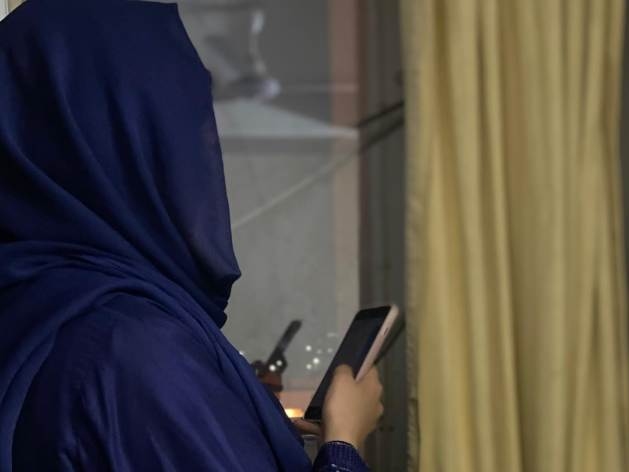
How Afghan Women Connect and Learn in the Face of Taliban Restrictions
The author is an Afghan female journalist who had Finnish training prior to the Taliban takeover. Her identify is hidden for security reasons. Social media use among Afghan women and girls has increased dramatically since the Taliban took over the nation in August 2021. Many women who are confined to their homes due to limitations find comfort in the texting software WhatsApp.
Women are using WhatsApp more frequently to stay in touch with friends, share ideas and information, participate in discussions, take part in online foreign language classes, and access online libraries as a result of the Taliban’s ban on them going to school, university, or the workplace.
The 23 years old Farhat Obeidi resides in Kabul with his parents and two brothers. She was a fourth-year psychology student at Kabul University until the Taliban forbade her from going there.
I was unable to see my buddies after we were expelled from the institution. I used WhatsApp to stay in contact with my buddies. Through the groups that we formed, our lecturers gave us access to all of the course materials. Farhat claims, “Even our friends who could not afford smartphones were able to participate in our online study groups and stayed in touch with us using the cell phones of their families.”
Farhat claims that the usage of social media has helped to alleviate the tensions and psychological issues created by women and girls’ unemployment. The ladies may maintain contact with their immigrant friends and family as well, as the applications don’t have time or location limits. Even with a weak internet connection, chatting is feasible and using the app is secure.
Although virtual communication will never be as successful as being there in the neighborhood, school, or university, it has facilitated communication among women and girls.
Afghan youth who are online learners are unable to complete their education due to power disruptions. The expensive or low-quality internet connection is another barrier.
Women can rarely afford internet connection since most Afghan households live below the poverty line and the majority of women have lost their jobs and income.
The amount of hate speech and sexualized internet abuse directed at women in Afghanistan has dramatically grown. Between June and December 2021 and the same period in 2022. Afghan Witness, an open-source project run by the non-profit Center for Information Resilience, collected and analyzed over 78,000 posts written in Dari and Pashto said two local Afghan languages directed at nearly 100 accounts of politically active Afghan women.
During that period, there were three times as many abusive posts. Afghan Witness stated that it discovered that the abuse on the internet was “overwhelmingly sexualized,” with phrases like “whore” and “prostitute” appearing in more than 60% of the messages in 2022.
A number of women who are politically engaged have chosen to remove their social media profiles.
Despite these difficulties like social media use has significantly increased in Afghanistan. Of the 40 million people living in Afghanistan, a recent poll shows that over nine million utilize the internet and interact on social media. Most Afghan youth use Facebook, Instagram, WhatsApp, and TikTok.
Facebook, Instagram, WhatsApp, and TikTok are the platforms of choice for the majority of Afghan youth.
